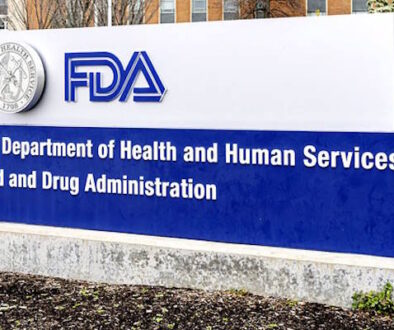The Gold Standard? COVID19 PCR Tests Are Scientifically Meaningless
Many were already doubting the accuracy of the PCR “rapid test” to determine if someone is infected with the Coronavirus when Elon Musk famously tweeted that he got both positive and negative results from four PCR tests administered to him.
Could this be why we’ve been seeing such a major spike?
— Zack (@BLKMDL3) November 13, 2020
Lockdowns and hygienic measures around the world are based on numbers of cases and mortality rates created by the so-called SARS-CoV-2 RT-PCR tests used to identify “positive” patients, whereby “positive” is usually equated with “infected.”
But looking closely at the facts, the conclusion is that these PCR tests are meaningless as a diagnostic tool to determine an alleged infection by a supposedly new virus called SARS-CoV-2.
At the media briefing on COVID-19 on March 16, 2020, the WHO Director General Dr Tedros Adhanom Ghebreyesus said:
We have a simple message for all countries: test, test, test.
The message was spread through headlines around the world, for instance by Reuters and the BBC.
Still on the 3 of May, the moderator of the heute journal — one of the most important news magazines on German television— was passing the mantra of the corona dogma on to his audience with the admonishing words:
Test, test, test—that is the credo at the moment, and it is the only way to really understand how much the coronavirus is spreading.
This indicates that the belief in the validity of the PCR tests is so strong that it equals a religion that tolerates virtually no contradiction.
But it is well known that religions are about faith and not about scientific facts. And as Walter Lippmann, the two-time Pulitzer Prize winner and perhaps the most influential journalist of the 20th century said: “Where all think alike, no one thinks very much.”
So to start, it is very remarkable that Kary Mullis himself, the inventor of the Polymerase Chain Reaction (PCR) technology, did not think alike. His invention got him the Nobel prize in chemistry in 1993.
Unfortunately, Mullis passed away last year at the age of 74, but there is no doubt that the biochemist regarded the PCR as inappropriate to detect a viral infection.
The reason is that the intended use of the PCR was, and still is, to apply it as a manufacturing technique, being able to replicate DNA sequences millions and billions of times, and not as a diagnostic tool to detect viruses.
How declaring virus pandemics based on PCR tests can end in disaster was described by Gina Kolata in her 2007 New York Times article Faith in Quick Test Leads to Epidemic That Wasn’t.
LACK OF A VALID GOLD STANDARD
Moreover, it is worth mentioning that the PCR tests used to identify so-called COVID-19 patients presumably infected by what is called SARS-CoV-2 do not have a valid gold standard to compare them with.
This is a fundamental point. Tests need to be evaluated to determine their preciseness — strictly speaking their “sensitivity”[1] and “specificity” — by comparison with a “gold standard,” meaning the most accurate method available.
As an example, for a pregnancy test the gold standard would be the pregnancy itself. But as Australian infectious diseases specialist Sanjaya Senanayake, for example, stated in an ABC TV interview in an answer to the question “How accurate is the [COVID-19] testing?”:
If we had a new test for picking up [the bacterium] golden staph in blood, we’ve already got blood cultures, that’s our gold standard we’ve been using for decades, and we could match this new test against that. But for COVID-19 we don’t have a gold standard test.”
Jessica C. Watson from Bristol University confirms this. In her paper “Interpreting a COVID-19 test result”, published recently in The British Medical Journal, she writes that there is a “lack of such a clear-cut ‘gold-standard’ for COVID-19 testing.”
But instead of classifying the tests as unsuitable for SARS-CoV-2 detection and COVID-19 diagnosis, or instead of pointing out that only a virus, proven through isolation and purification, can be a solid gold standard, Watson claims in all seriousness that, “pragmatically” COVID-19 diagnosis itself, remarkably including PCR testing itself, “may be the best available ‘gold standard’.” But this is not scientifically sound.
Apart from the fact that it is downright absurd to take the PCR test itself as part of the gold standard to evaluate the PCR test, there are no distinctive specific symptoms for COVID-19, as even people such as Thomas Löscher, former head of the Department of Infection and Tropical Medicine at the University of Munich and member of the Federal Association of German Internists, conceded to us[2].
And if there are no distinctive specific symptoms for COVID-19, COVID-19 diagnosis — contrary to Watson’s statement — cannot be suitable for serving as a valid gold standard.
In addition, “experts” such as Watson overlook the fact that only virus isolation, i.e. an unequivocal virus proof, can be the gold standard.
That is why I asked Watson how COVID-19 diagnosis “may be the best available gold standard,” if there are no distinctive specific symptoms for COVID-19, and also whether the virus itself, that is virus isolation, wouldn’t be the best available/possible gold standard. But she hasn’t answered these questions yet – despite multiple requests. And she has not yet responded to our rapid response post on her article in which we address exactly the same points, either, though she wrote us on June 2nd: “I will try to post a reply later this week when I have a chance.”
Continue reading at the source: https://off-guardian.org/2020/06/27/covid19-pcr-tests-are-scientifically-meaningless




